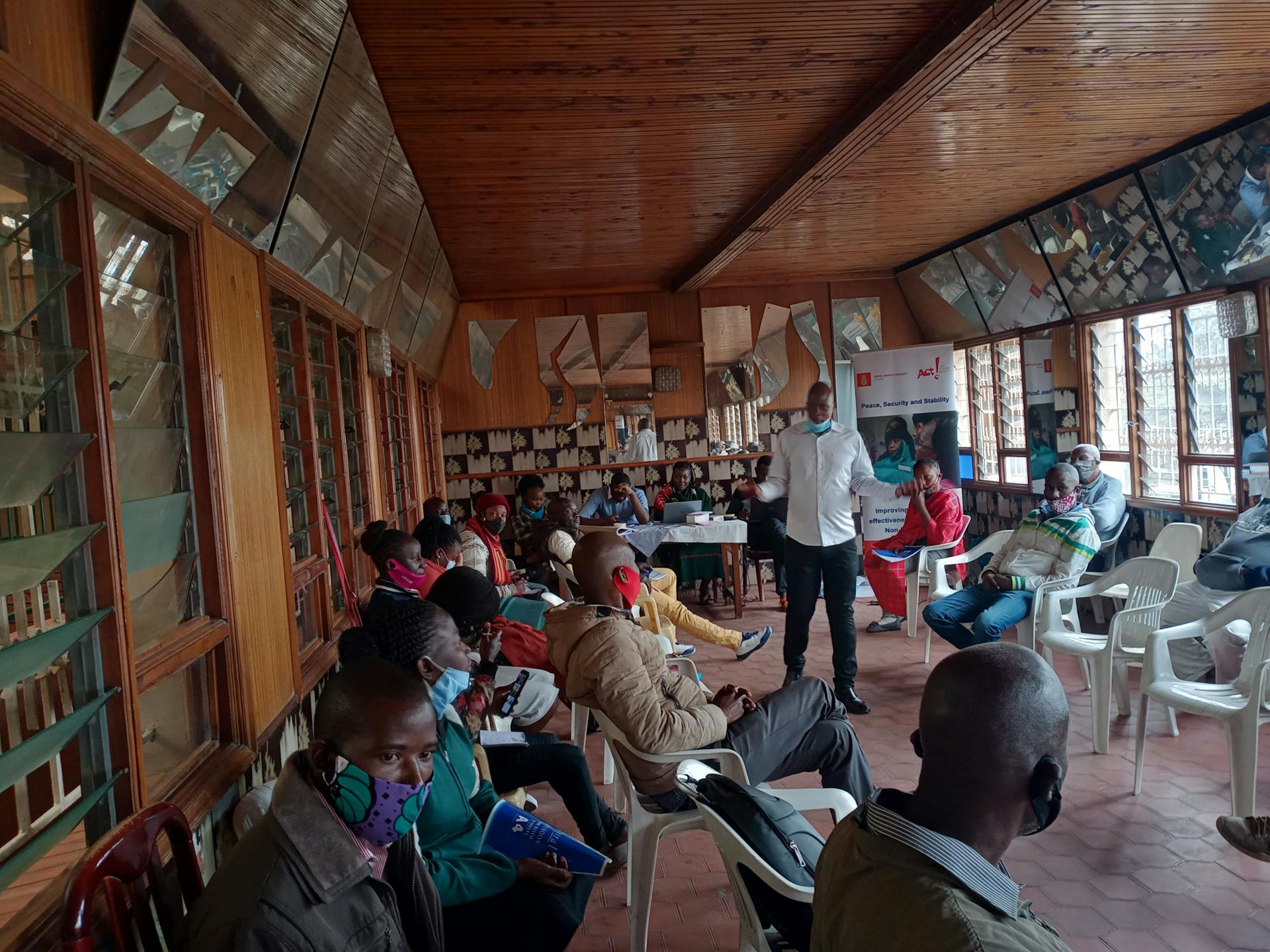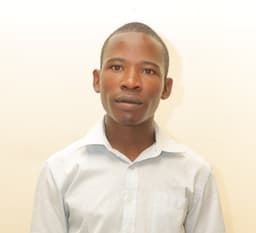
BACKGROUND
Landlord tenant conflict has been an issue in the informal settlements for a long time. The conflict has been triggered by issues such as political clashes, tribal violence and this time by the Covid-19 pandemic. The landlord tenant issues have results to violence that ended up in loss of life, tribal zoning and destruction of property. Due to the economic situation caused by Covid-19, the landlord tenant conflict has resurfaced in the informal settlement of Mathare, there are claims that the landlords take measures like use of hooligans to evict people in the house who are not able to pay rent, removing roofs or doors off, locking doors in the evening, or cutting out power supply and water which are essential at this time.
Due to the conflict MPI in partnership with ACT organized two separate landlord and tenant dialogue in Mathare with the following objectives.
Objectives
- Reduce or end violence that is landlord tenant related
- Build a relationship between the landlords and tenants and a culture of dialogue
- Create a local residence association that will help in reduction of landlord tenant cases.
INTRODUCTION
The meeting commenced by a word of prayer from one of the participants and thereafter everyone was welcomed to feel free in the meeting. Every participant was then given an opportunity to do self-introduction and it was successfully done. The attendance was good with a total of 50 tenants attending the meeting as it was expected, with 20 males and 30 females.
The meeting was later joined by area senior Chief who was given an opportunity to share with the congregation and officially open the forum. He talked about the importance of dialogue between the landlords and tenants for a common understanding, the importance to observe the government regulations in regards to Covid-19 and emphasized on the tenants’ Rights.
The participants were given the opportunity to set the meeting guiding rules, the following rules were set to guide the dialogue session:
- All phones were to be switched off or put in silent/ flight mode to minimize distractions in the room.
- Good time management, as the timetable was to be strictly followed.
- Minimizing movements as members were requested to avoid unnecessary movements during the meeting.
- Audibility as members were requested to speak louder and proud.
- Active participation as members were to feel free to share out their views appropriately.
- Respect of each other’s opinion
The following were mentioned as some of the expectations from the participants:
- Share out challenges faced as tenants and get possible solutions of the same.
- Freely socialize and mingle with others.
- Learn new things from fellow members as they come together.
- Understand the tenant rights and channels to seek for help
The facilitators introduced the organizations that made the session successful as they gave a brief about the forum which led to the following questions from the participants.
- Who is a tenant?
- What are some of the challenges faced by tenants in their places of residence?
- What are some of the possible solutions to the challenges?
- What are some of the tenants’ Rights?
After a discussion to some of the questions above the team agreed that A tenant is an individual who has occupied a property/land rented from a property owner.
The tenants were divided in three groups to discuss the tenant challenges and propose possible solutions to the challenges mentioned.
Some of the challenges faced by Tenants
- Shortage of water. Most tenants raised the issue of lack of water in their places of residence saying that the source of water they use is unreliable therefore they can sometimes go for almost a week without water. This forms their major challenge especially now during Covid-19 that people are required to maintain cleanness.
- Harassment by landlords-agents. Tenants complained that they get harassed by most of the landlords and agents. They complained of excessive force being used during eviction and maybe even being threatened when they failed to pay their rent on time. They are locked out of houses or roofs removed.
- Corruption. Some tenants complained about the chief being bribed with the landlord and agree to have the tenants forcefully evicted from the house without notice.
- Insecurity. Some of the tenants complained that they are losing their properties like clothes from the hanging lines as local theft cases are too much on the other hand some of them are also being attacked by robbers at night contributed by lack of street lights along the local roads which robbers take as an advantage.
- Noise pollution. This was said to be caused by loud music played by neighbors without considering fellow neighbors.
- Poor sanitation and hygiene. This was said to be caused by lack of dustbins and poor disposal of wastes practiced by tenants. This was also facilitated by inadequate water supply to be used in the washrooms.
- Increase of rent by landlords/landladies. Some of the tenants complained that their landlords/landladies increase rents without any notice and the same is faced from the agents as well.
- Power Rationing. This is caused by the sharing of meter as the entire plot uses one meter. This doesn’t allow the use of electrical devices like cookers, heaters, iron boxes etc. that consumes a lot of power since the power is rationed only to accommodate devices consuming low power.
- Poor condition of rental houses. It was raised that most landlords forget to do renovation of rooms hence leaving them in poor condition
Proposed solutions
- Tenants to have meetings with property owners or agents where they can air their challenges directly to the people concerned.
- Landlords to have direct contact with the tenants more so during this period of COVID-19 because some agents are abusive and ignorant of the challenges the tenants go through, they push hard for rent to be paid because their salary depends on rent.
- Fellow tenants to be responsible for other`s properties in order to reduce the theft cases. If they notice visitors lurking around the plot then they can inquire on the nature of the stranger`s visit and respond accordingly.
- Landlords to supply the dustbins for hygienic disposal of the wastes by the tenants.
- Landlords to provide each tenant with a meter in order to reduce or even eliminate power rationing.
- Landlords to set rules that govern the operation of the tenants.
- Landlords to provide each tenant with the key to the building so as to control theft cases.
- Tenants to have self-responsibility within their places of residence.
- Tenants should have an agreement form signed before they settle into a given house. Also, the rent should be receipted for accountability and transparency.
- Tenants should not be so desperate while looking for a house to rent; this ensures that they are not exploited by the agents.
- Tenants to be given a notice of at least three months to vacate the rooms or when there is need to increase the rent charges.
Rights of tenants
After the group presentation the participants were taken through the tenants’ rights as indicated below, it was obvious that the most know tenant right was that they were to be given three months’ notice before an eviction
- Tenants have the right to own a signed agreement form before they settle into a given house.
- Tenants should be given at least three months’ notice before they are evicted.
- Tenants have the right to live in a clean environment.
- Tenants have the right to get access to clean and fresh water.
- Tenants have the right to live peacefully in their house once they have paid for it.
Way forward
The participants agreed that it would be a good idea to have a joined landlord tenant dialogue for both teams to hear the views of each other and come up with reasonable solutions.
Tenants agreed to use dialogue and reduce conflict among landlords and tenants.
Tenants agreed to have a plot representative in the residential plots who will work closely with the landlord.
The meeting was concluded with a word of prayer from one of the participants, the participants had lunch and left afterwards.
← More blog postsAbout the author

Michael Oyier
ICT Specialist and M&E Officer at MPI Kenya




